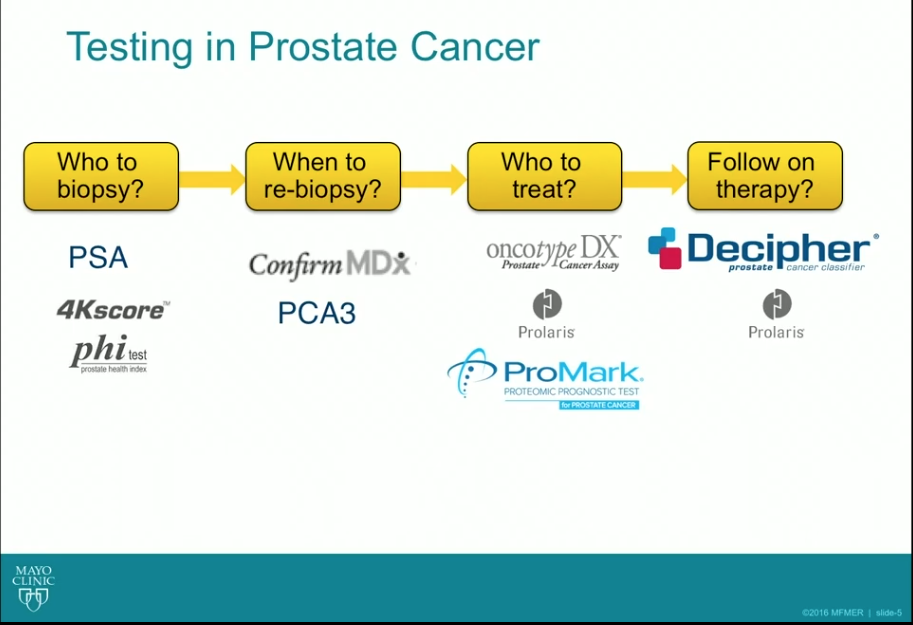Alan H. Bryce MD, presented “Biomarkers in Localized Prostate Cancer: Sure You Can, But Why Would You?” during the 27th Annual Perspectives in Urology: Point Counterpoint on November 9, 2018 in Scottsdale, Arizona.
How to cite: Bryce, Alan H. “Biomarkers in Localized Prostate Cancer: Sure You Can, But Why Would You?” November 9, 2018. Accessed Mar 2026. https://grandroundsinurology.com/biomarkers-in-localized-prostate-cancer-sure-you-can-but-why-would-you/
Biomarkers in Localized Prostate Cancer: Sure You Can, But Why Would You? Summary:
Alan H. Bryce, MD, discusses the role of biomarkers in clinical decision-making for localized prostate cancer. He argues that while currently available assays have demonstrated predictive ability, prospective data remains insufficient to determine whether or not they improve clinically meaningful endpoints.
This presentation is part of a Point-Counterpoint debate. Watch the rebuttal: “There is a Role for Currently Available Biomarkers: Genomics in the Risk Stratification of Prostate Cancer” by Timothy C. Brand, MD.
Abstract:
Decision-making in the management of localized prostate cancer remains complex. Patients and practitioners struggle with decisions regarding biopsy versus surveillance, surveillance versus treatment, and adjuvant radiation therapy versus ongoing observation. Clinical risk calculators have proven imperfect.
A variety of commercially available genomic testing platforms are currently available to help in the decision-making process. These assays have demonstrated ability to predict the risk of meaningful clinical outcomes, such as biochemical recurrence, time to metastasis, and overall survival.
However, none of these tests have been tested in randomized controlled trials. Therefore, it is unknown whether their use can lead to improvement in clinically meaningful endpoints. Tests of their utility have only proven a decrease in patient anxiety and changes in recommended treatment. Prospective data is necessary before guidelines can recommend these tests for routine clinical use. Combining the evaluation of other tumor-related features and patient characteristics with biomarker analysis is a more ideal decision-making approach. New diagnostic methods, such as advanced imaging, may have better applicability than biomarkers altogether in the modern era.
About Perspectives in Urology: Point Counterpoint
Perspectives in Urology: Point Counterpoint (PCP) is an annual CME-accredited conference devoted to discussing and debating the latest topics in men’s health, general urology, and genitourinary cancers. The conference’s format includes more than didactic lectures. It also includes debates, point-counterpoint discussion panels, and unique case-based presentations. Dr. Bryce presented this lecture during the 27th PCP in 2018. Please visit this page in order to register for future PCP meetings.
ABOUT THE AUTHOR
Alan H. Bryce, MD, is a Medical Oncologist and Chief Clinical Officer at City of Hope in Phoenix, Arizona. Dr. Bryce holds an appointment as a Professor with the Department of Medical Oncology & Therapeutics Research and as a Professor of Molecular Medicine at Translational Genomics Research Institute (TGen), both a part of City of Hope.






